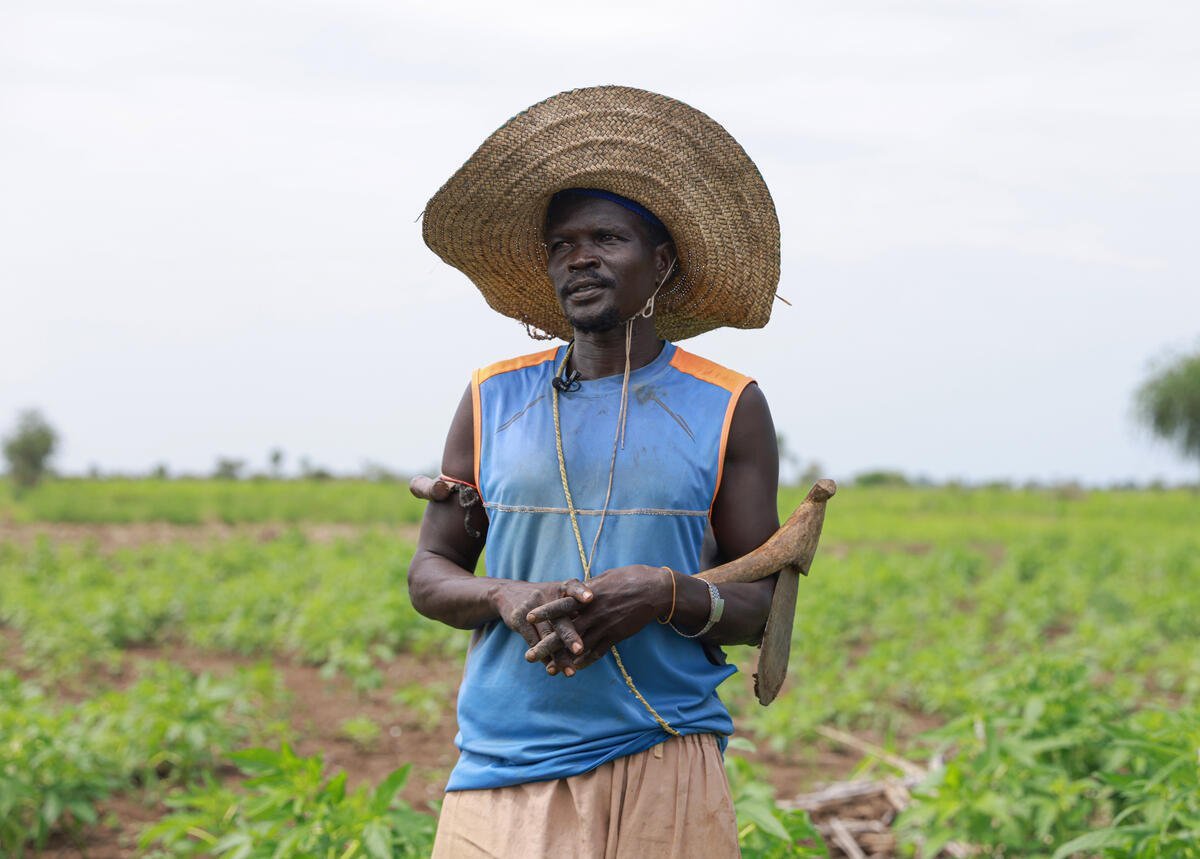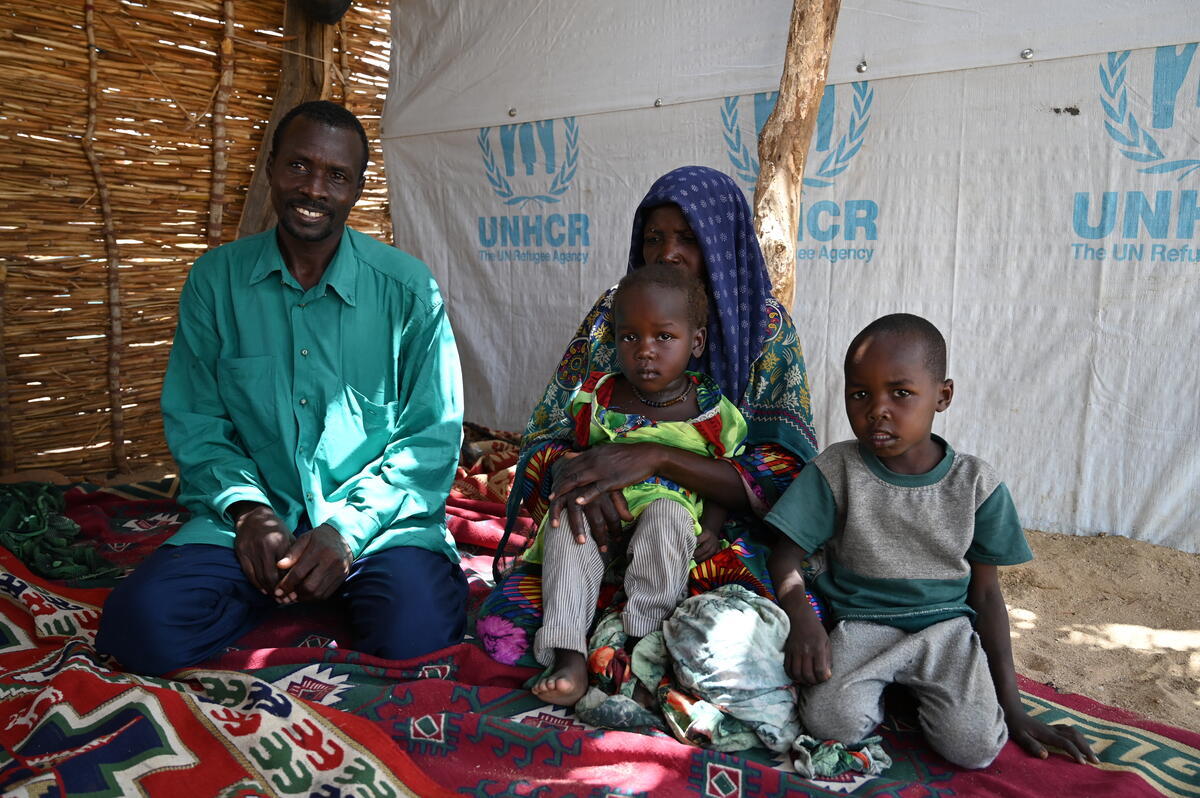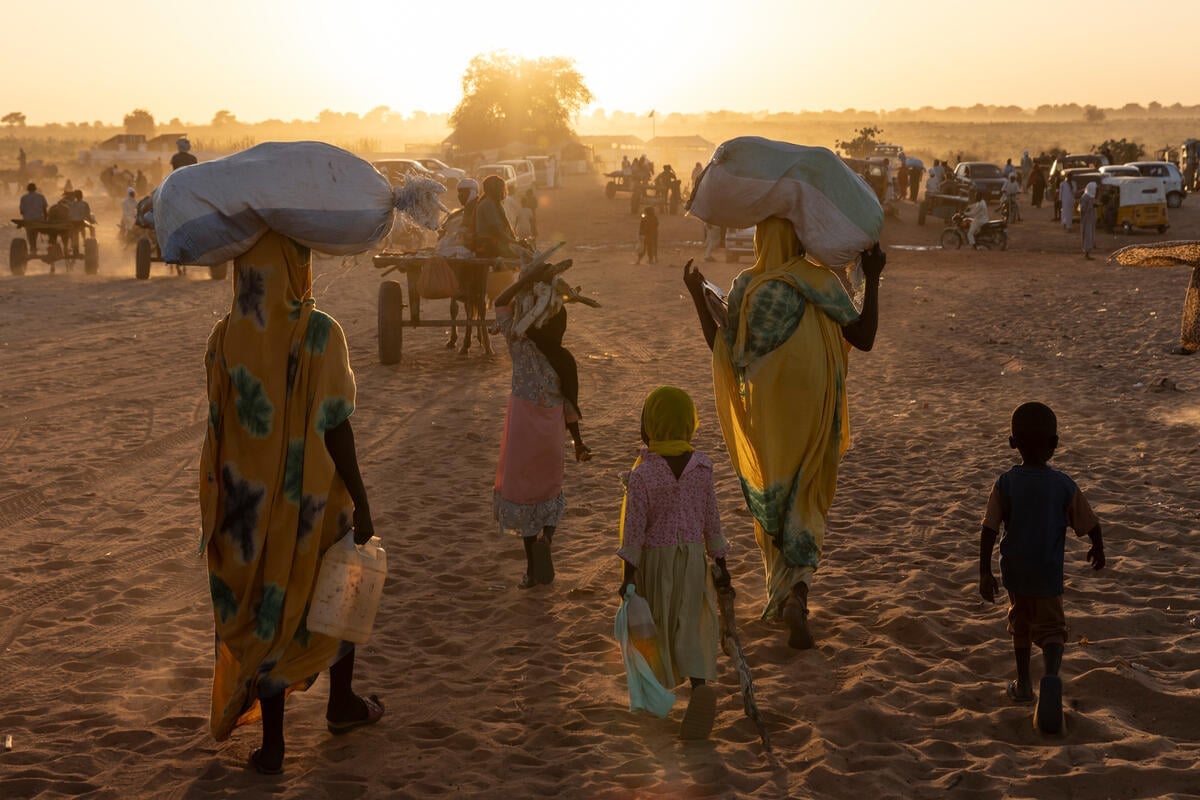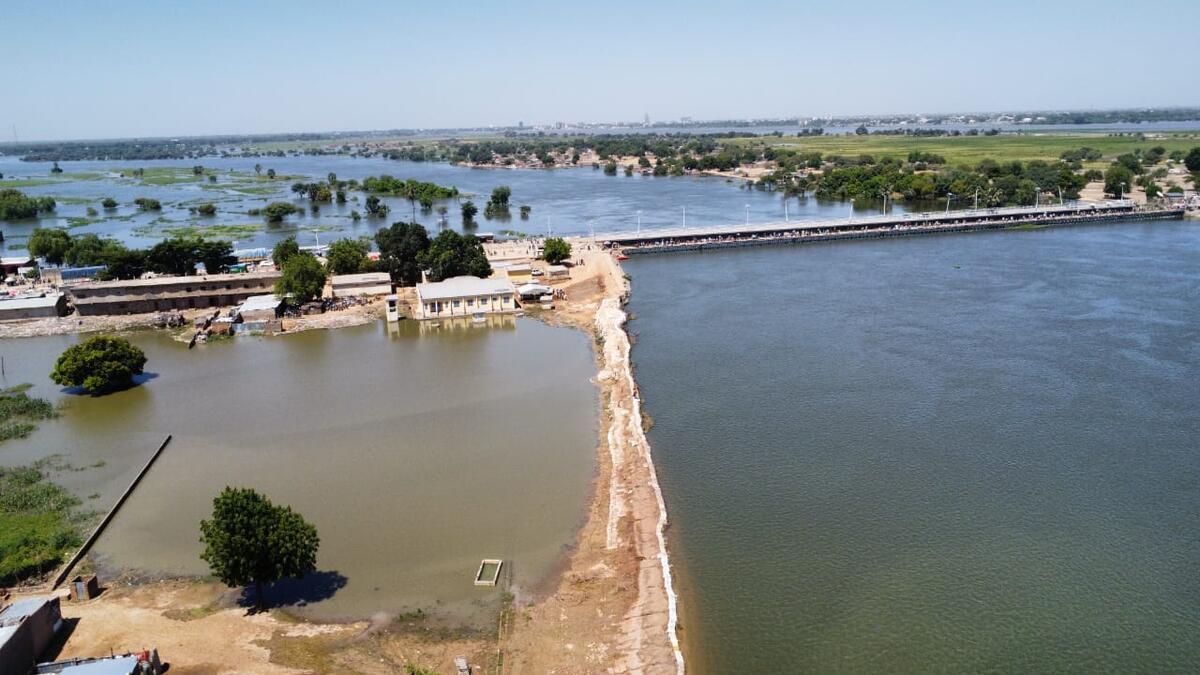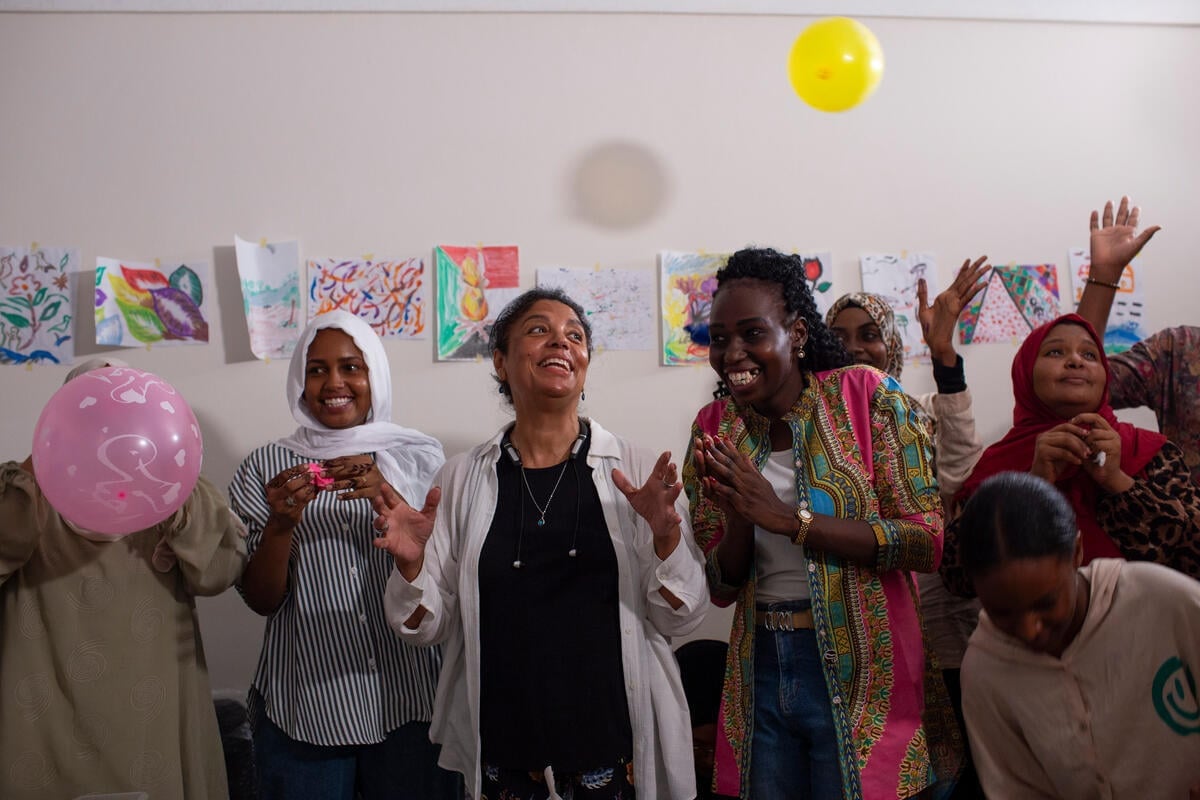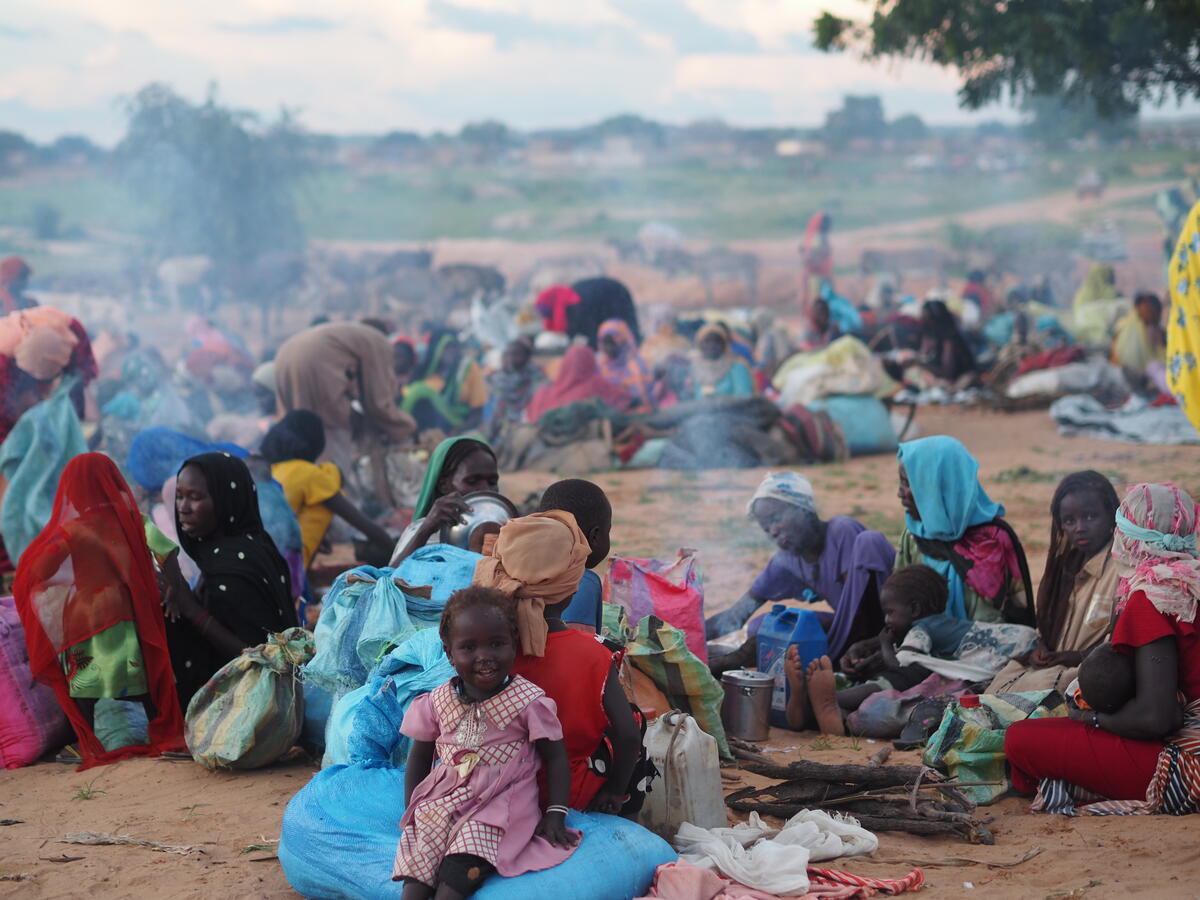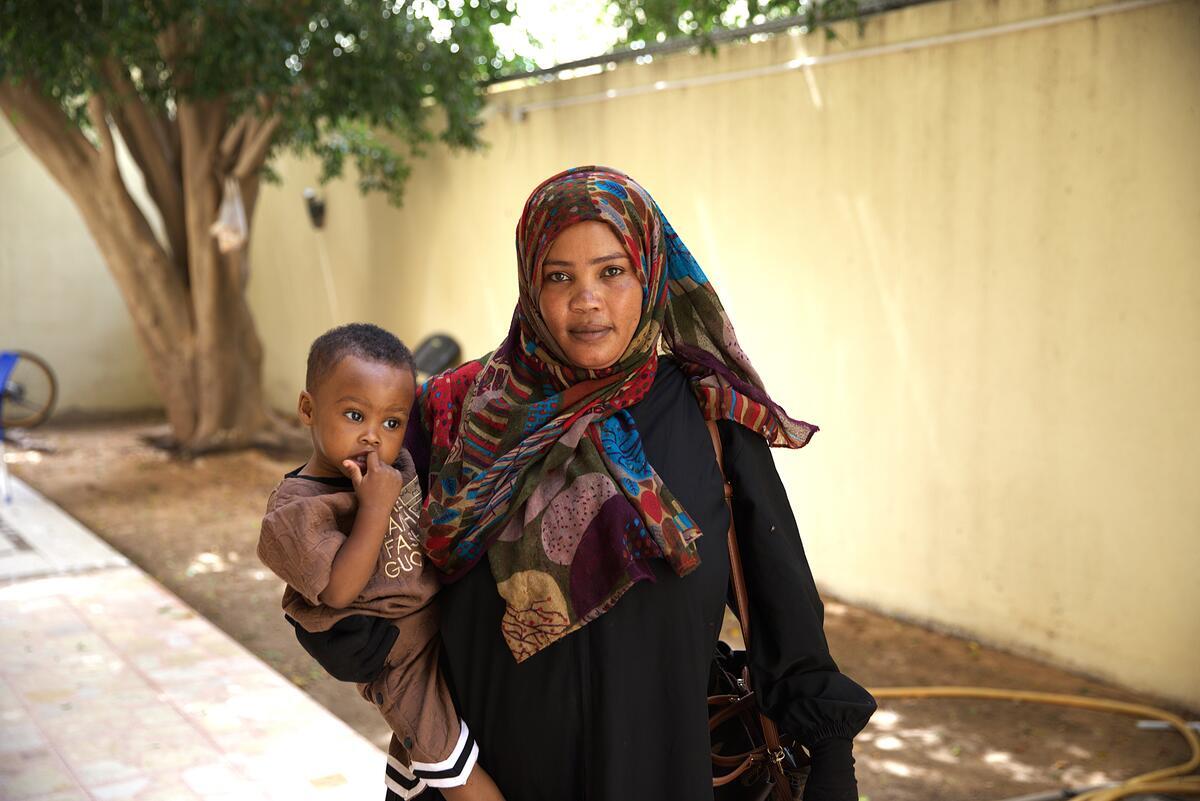Chad: pre-registration of Sudanese set to begin
Chad: pre-registration of Sudanese set to begin
UNHCR staff in eastern Chad are set to begin pre-registering the first of tens of thousands of Sudanese refugees Thursday in the Adré region bordering Sudan, in preparation for their relocation to a safer camp further inland. We hope to start moving the refugees by truck to the new Farchana camp over the weekend.
UNHCR and its German partner, GTZ, are finalising preparations at Farchana, 55 km from the border, to receive the refugees. By the end of the week, the camp should be ready for the first 2,000 people, and eventually will be expanded for up to 9,000 refugees. Twenty-five large tents are being erected at the camp each day. GTZ has readied three wells in the nearby village of Farchana, three km from the camp. Water will be transported by truck from the wells to the camp and will be stored in bladders for use by the refugees. The agencies plan to drill wells directly at the site in the near future to provide water for all the refugees.
The journey from the Adré region to Farchana, although only some 70 km, is expected to take up to three hours because of poor road conditions and the logistical difficulties of moving large numbers of people by convoy. Initially, UNHCR and its partners plan convoys for about 300 people every couple of days. They will then shift to daily convoys as the operation gets fully underway. The whole process is expected to run for a period of weeks.
Upon arrival at the camp, the refugees will be registered and assigned a tent, before going through medical screening carried out by a team from MSF-Holland. The screening will include vaccinations. The refugees will also receive a food package provided by the World Food Programme with enough sorghum, corn flour and oil for 15 days. UNHCR will distribute blankets, mattresses, mosquito nets, kitchen sets, soap and jerry cans to the refugees.
UNHCR and the Chadian authorities continue to work closely to identify more new sites. Potential sites must be located at least 50 km from the border for security reasons. Some refugees gathered in spontaneous sites near the border have been victims of regular incursions by Sudanese militia who cross over to Chad and steal their livestock. The sites must also have sufficient water supplies for the refugees and adequate surrounding land to allow refugees to grow grain and feed their cattle. So far, of the six sites identified in addition to Farchana, only two meet these criteria. Both sites are located to the north of Farchana - Saranh, in the Iriba area, will have a capacity of up to 20,000 people, and Kounoungo, near Guéréda, could host 8,000 people. A Chadian hydro-geologist team is expected to assess new potential sites in the coming days.
In the meantime, UNHCR and all other humanitarian actors present in eastern Chad continue regular aid distributions to the refugees still waiting along the remote and insecure border.
An estimated 95,000 Sudanese have fled to Chad since last March - 30,000 in December alone. They are scattered along a 600-km stretch of remote borderland in dozens of makeshift camps where they are still vulnerable to periodic incursions by militia from Sudan.


